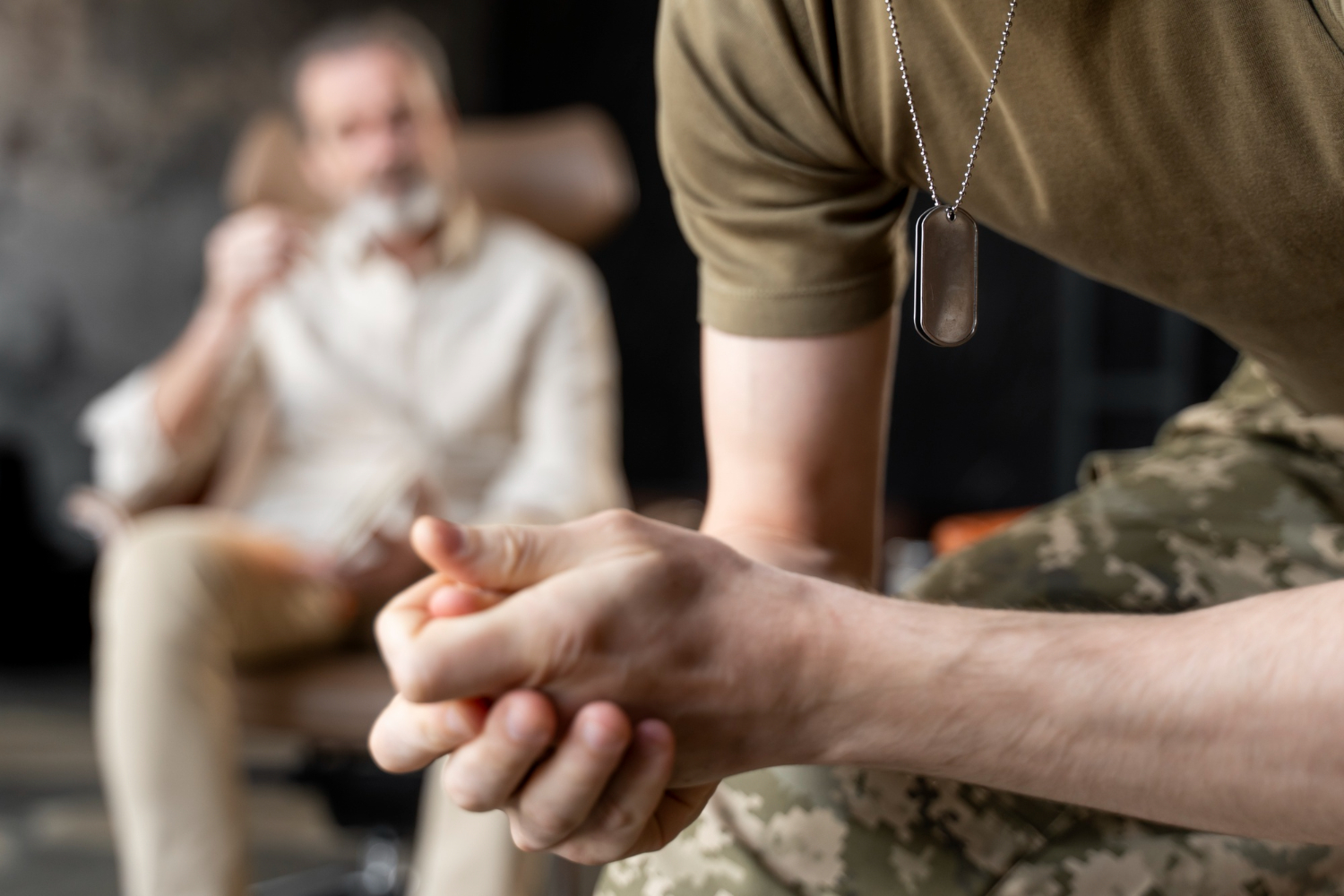Military life is glamorously portrayed as a life of valor and strength. It’s the same reason that the invisible wounds carried by service members can go unnoticed. These invisible wounds are just as real and significant as physical injuries, yet they continue to be stigmatized. In this article, we’ll shed light on the importance of supporting mental health in the military community and offer supplement-based options for effectively managing these mental health issues.
Invisible Wounds: Unveiling the Unseen Battles within Military Community
Military members and veterans typically grapple with invisible wounds, which encompass a myriad of mental health conditions such as post-traumatic stress disorder (PTSD), anxiety and depression, and traumatic brain injury (TBI). These wounds can be caused by exposure to combat, traumatic experiences during service, multiple deployments, and the unique stressors of military life. However, despite their frequent occurrence, these invisible wounds are typically misunderstood and dismissed, which leads to significant stigma surrounding mental health issues, resulting in more barriers to seeking help.
Standing Strong Together: Supporting Mental Health in the Military Community
Supporting mental health in the military community can help service members and their families cope with the unique challenges they face. It is challenging, yet there are ways to support them to remain resilient and strong in times of adversity, especially during recovery.
-
Foster Open Dialogue.
Encouraging open and honest conversations about mental health in the military community may create a culture of support and understanding for individuals to share their experiences, wherein seeking help and supporting military individuals are signs of strength and not weakness.
-
Prioritize self-care.
Self-care practices that can promote mental well-being are helpful for service members as they grapple with challenges from their military service. Regular exercise, adequate sleep, proper nutrition, and mindfulness techniques can be beneficial.
-
Provide access to resources.
Ensure that service members and their families have access to resources and services supporting mental health. Counseling services, mental health clinics, peer support communities, and online services can guide and manage mental health issues.
-
Build a supportive community.
Building supportive networks and connections can foster a sense of camaraderie and belonging within the military community. Peer support programs, support groups, and community resources can foster a sense of belonging, reduce feelings of isolation, and encourage them to seek help when necessary.
Enhancing Mental Resilience through Supplement-Based Approaches
The high-stress environment of the military highlights the importance of maintaining mental health and well-being. While traditional approaches are vital, there are supplement-based strategies that can also play a valuable role in promoting resilience and coping mechanisms.
Supplements can offer a complementary approach to traditional treatments by providing essential nutrients that can support brain function, mood regulation, and stress management. However, these shouldn’t replace professional medical advice and guidance.
Try incorporating supplements such as fish oil, vitamin D, and multivitamins to fill in nutrient gaps and support overall well-being. Supplements rich with adaptogens such as ashwagandha, rhodiola rosea, and holy basil can also help with managing stress, anxiety, and fatigue. Moreover, adequate sleep is essential for mental health and resilience, so considering supplements with melatonin, chamomile, or valerian root can promote relaxation and improve sleep quality and overall well-being.
While supplements can be beneficial, it’s still advisable to seek professional guidance and supervision before incorporating supplements into your daily routine to address other underlying medical conditions and create a more personalized approach for your unique needs.
Supporting mental health in the military community is a conscious and collective effort that requires compassion and understanding. By fostering open dialogues, prioritizing self-care, providing access to resources, building supportive communities, and trying complementary supplemental approaches, we can cultivate a sense of resilience within the military community. Together, let’s stand in solidarity and support our service members in facing these mental health challenges with courage for a healthier, happier, and more successful life.


